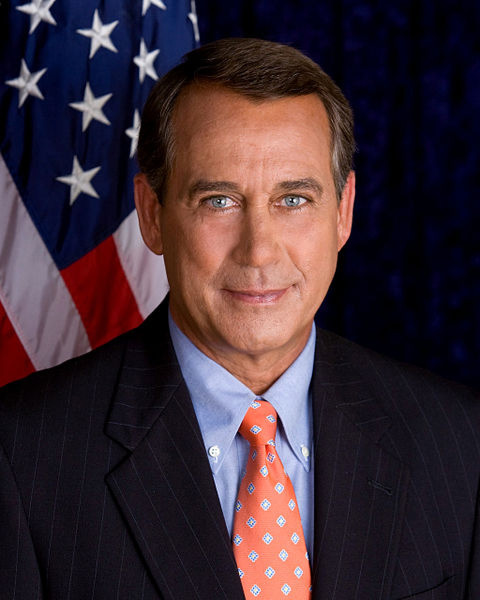Democrats And Republicans Almost Equally Disapprove Of Boehner After Fiscal Cliff Talks

Fifty-one percent of Americans disapprove of House Speaker John Boehner’s performance in the recent fiscal cliff talks, according to a new a poll. But President Barack Obama’s approval rating was only marginally better, perhaps more evidence that the American public has serious concerns regarding the way the nations’ leaders actually conduct the business of running a country.
Just over half of the respondents surveyed by the Washington Post and ABC News said they disapproved of Boehner’s efforts in the recent budget talks, a sentiment that was hardly partisan: 49 percent of Republicans, 52 percent of independents and 56 percent of Democrats reportedly said they did not approve of the way the Ohio congressman conducted himself during the budget negotiations to avoid the so-called fiscal cliff.
More interestingly, the Midwest and South -- regions traditionally sympathetic to conservatives -- were most likely to disapprove of Boehner’s role in the debt talks. Fifty-five percent of voters in both areas said they disagreed with his proposals, which focused on deep spending cuts with little revenue increases.
Boehner also managed to earn some ill will from Republicans with his failed Plan B proposal, which would have extended tax cuts for most people while allowing tax rates to rise to 1990s levels for incomes above $1 million. House conservatives, most of whom were resistant to any tax increases whatsoever, balked at the proposal, which failed to receive enough support for a vote. Last week, Boehner was narrowly re-elected as speaker of the house.
And while 52 percent said they approved of the president’s performance in the fiscal talks, it’s impossible to ignore the fact that 48 percent -- a significant proportion -- did not. Unlike Republicans with Boehner, Democrats were far more likely to support Obama’s handling of the negotiations. According to the poll, Obama’s support was the weakest among the wealthiest taxpayers -- the people who will actually be affected by the new tax changes.
Under the fiscal cliff deal, only individual incomes above $400,000 and household incomes of $450,000 will be subject to the top 39.6 percent tax rate this year. The deal has been considered a win for Obama, even though he was ultimately forced to cave on a much-cited campaign promise to impose higher tax rates on incomes above $250,000. Plus, as the Center for Budget and Policy Priorities has pointed out, the final deal preserved 82 percent of Bush tax cuts.
The White House insists the next debt deal must include just as much tax revenue as spending cuts. Both parties are already gearing up for the next budget fight over the nation’s current $16.4 billion debt ceiling. The Bipartisan Policy Center on Monday reported that the U.S. may begin defaulting on its payment obligations as soon as Feb. 15 if that limit is not raised.
The fight over raising the debt ceiling has, in recent years, become an arena for spectacular partisan bickering and gridlock. Last year, it led to the downgrading of the U.S. credit rating from Standard & Poor’s for the first time in the country’s history and eventually resulted in Congress’ lowest approval rating of all time.
© Copyright IBTimes 2024. All rights reserved.





















